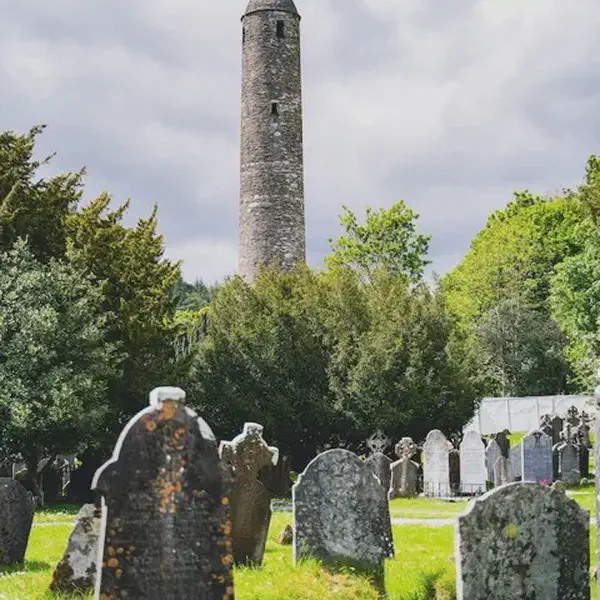
Bobby Sands Dies at Long Kesh Prison on the 66th Day of His Hunger Strike
May 05, 1977
Robert Gerard Sands, commonly known as Bobby Sands (9 March 1954 – 5 May 1981) was an Irish republican and a former MP who died on hunger strike in the prison officially called HM Prison Maze but formerly known as Long Kesh (a name still used by Irish Republicans).
In prison, Sands became a writer both of journalism and poetry which was published in the Irish republican newspaper An Phoblacht. In late 1980 Sands was chosen as Officer Commanding IRA prisoners in Long Kesh. Sands became increasingly zealous in his Catholic faith. According to the writer and politician Conor Cruise OBrien (who was a strong supporter of Irish unionism), Sands received, while on hunger strike, an icon of the Virgin Mary from a priest in Kerry who had encouraged him to take arms for his oppressed people (in Northern Ireland).
Republican prisoners had organised a series of protests seeking to regain their previous status of political prisoners and not be subject to ordinary prison regulations. This started with the blanket protest in 1976, when the prisoners refused to wear uniform and were allowed only blankets instead. The dirty protest of 1978 saw prisoners living in squalor by smearing excrement on the walls. There had been an earlier hunger strike in Autumn 1980, which had ended when the British government appeared to concede the prisoners demands. When that strike was over, the government had reverted to its previous hardline stance.
The Second Hunger Strike started with Sands refusing food on 1 March 1981. Sands decided that other prisoners should join the strike at staggered intervals in order to maximise publicity with prisoners steadily deteriorating and dying successively over several months.
Shortly after the beginning of the strike, Frank Maguire, the Independent Republican MP for Fermanagh & South Tyrone died of a heart attack suddenly and precipitated a by-election.
The sudden vacancy in a seat with a small Roman Catholic majority was a valuable opportunity for Sands supporters to unite the nationalist community behind their campaign. Pressure not to split the vote led other nationalist parties, notably the Social Democratic and Labour Party, to withdraw and Sands was nominated on an Anti H-Block -Armagh Political Prisoner ticket.
After a highly polarised campaign, Sands narrowly won the seat on 9 April 1981, with 30,492 votes to 29,046 for the Ulster Unionist Party candidate Harry West, incidentally also becoming the youngest MP at the time. The British government changed the law not long afterwards by amending the Representation of the People Act.
This amendment prohibited prisoners from standing in elections, and required a five-year period from the date of conviction to have elapsed before an ex-prisoner could stand. (Tommy Sheridan, also of Irish Catholic descent, who had been a prisoner in the UK for a civil offense managed to find a loophole in the legislation and become an elected to Glasgow City Council while serving a prison term. Since he was had been convicted of a civil offence and not a criminal one – failure to pay the Poll Tax – he was entitled to stand for election and subsequently won the seat.)
Three weeks later, Bobby Sands MP died from starvation in the prison hospital after 66 days of hunger-striking. He was 27 years old. The announcement of his death prompted several days of riots in nationalist areas of Northern Ireland. Over 100,000 people lined the route of his funeral. Sands was a Member of the Westminster Parliament for twenty-five days, though he never took his seat or oath.
He was survived by his parents, siblings, and a young son (Gerard) from a teenaged relationship.
Nine other IRA and INLA men who were involved in the 1981 Irish Hunger Strike also died after Bobby Sands. Most Irish Republicans and IRA sympathisers regard Bobby Sands and the other nine men as being martyrs who stood firm against the intransigence of the British Government, and many Irish nationalists who abhorred the IRA were outraged at the British governments stance.
The media coverage that surrounded the death of Bobby Sands resulted in a new surge of IRA activity, with the group obtaining many more members and increasing its fundraising capability. Many people felt driven to help break the British connection by helping the IRA, seeing no other option given the intransigence of British politicians attitudes towards Ireland. The numerous electoral successes during the strike prompted the republican movement to move towards politics, and indirectly paved the way for the Good Friday Agreement and the success of Sinn Féin many years later.